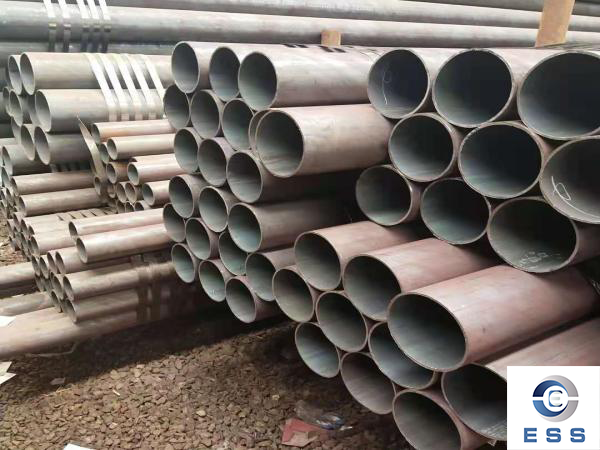Methods for removing rust from carbon steel pipe

Carbon steel pipes are divided into hot-rolled and cold-rolled (drawn) steel pipes. Hot-rolled carbon steel pipes are divided into general steel pipes, low- and medium-pressure boiler steel pipes, high-pressure boiler tube, alloy steel pipes, stainless steel pipes, petroleum cracking pipes, geological steel pipes and other steel pipes. Cold-rolled (drawn) carbon steel pipes include carbon thin-walled steel pipes, alloy thin-walled steel pipes, stainless thin-walled steel pipes, and special-shaped steel pipes in addition to general steel pipes, low- and medium-pressure boiler steel pipes, high-pressure boiler steel pipes, alloy steel pipes, stainless steel seamless pipes, and other steel pipes.
During the use of carbon steel pipes, due to the action of oxygen and water, it is easy to produce internal rust. This will not only reduce the service life of carbon steel pipes, but may also affect the normal operation of the pipeline. So, how should we remove rust from carbon steel pipes?
Method 1: Mechanical rust removal
Mechanical rust removal is a more traditional method, and various tools can be used to remove rust from carbon steel pipes. Common tools include wire brushes, sandpaper, scrapers, etc. First, select the right size of tool, hold it tightly and wipe the inner wall of the pipe vigorously until the rust is removed. This method is relatively simple and direct, but it requires a certain amount of physical strength and patience, and it will also cause a certain amount of wear on the inner wall of the pipe.
Method 2: Chemical rust removal
Chemical rust removal is a method of using chemical agents to dissolve or transform rust. Common chemical rust removers are acidic and alkaline. Acidic rust removers generally contain acidic components, such as dilute hydrochloric acid, dilute sulfuric acid, etc., which can dissolve rust. When using, pour the acidic rust remover into the carbon steel pipe, let it stand for a period of time, and then rinse it with water. Alkaline rust removers generally contain alkaline components, such as sodium hydroxide, potassium hydroxide, etc., which can transform rust into water-insoluble substances. When using, pour the alkaline rust remover into the carbon steel pipe, let it stand for a period of time, and then rinse it with water. The chemical rust removal method can remove rust more thoroughly, but safety must be paid attention to during use to prevent the agent from harming the human body and the environment.
Method 3: Electrochemical rust removal
Electrochemical rust removal is a method of removing rust using electrochemical principles. By applying current to the carbon steel pipe, the anode is oxidized and the cathode is reduced, thereby removing the rust. This method will not cause wear to the inner wall of the pipe, and can remove the rust more thoroughly. Electrochemical rust removal requires special equipment and technical support, and is suitable for large-scale or serious rust treatment. In addition to the above methods, there are some other auxiliary measures that can help remove rust in carbon steel pipes:
1.Preventive measures: Regularly clean and maintain carbon steel pipes to prevent rust. Rust inhibitors or coatings can be used to protect the surface of carbon steel pipes, reduce the contact of oxygen and water, and thus extend the service life.
2.Pipeline cleaning: Regularly cleaning carbon steel pipes can reduce the accumulation and accumulation of rust and maintain the smooth flow of pipelines.
3.Pipeline maintenance: Regularly inspect and maintain carbon steel pipes, promptly discover and repair problems in the pipeline, and prevent rust from spreading and corrosion.
In short, removing rust from carbon steel pipes is an important task that can extend the service life of carbon steel pipes and ensure the normal operation of the pipeline. Selecting the appropriate method according to the specific situation, while paying attention to safety and environmental protection, can effectively remove rust from carbon steel pipes and ensure the quality and safety of pipelines.
Read more: Roughness of carbon steel pipe













 Eastern Steel Manufacturing Co.,Ltd not only improve product production and sales services, but also provide additional value-added services. As long as you need, we can complete your specific needs together.
Eastern Steel Manufacturing Co.,Ltd not only improve product production and sales services, but also provide additional value-added services. As long as you need, we can complete your specific needs together.










